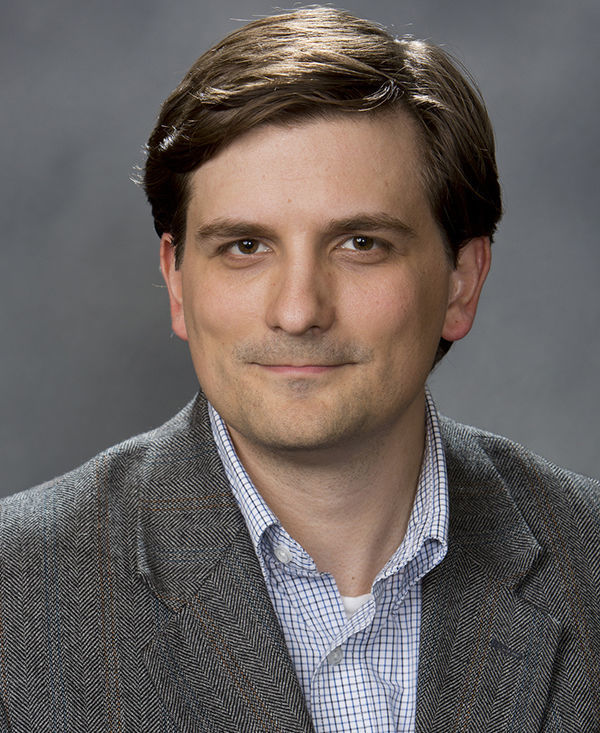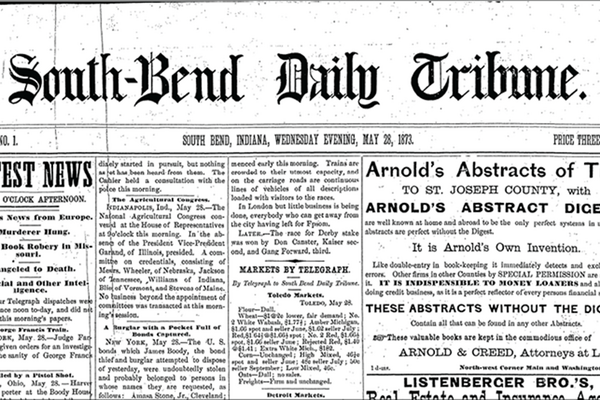 John Liberatore
John Liberatore
John Liberatore is captivated by the glass harmonica, an archaic 18th-century instrument invented by Benjamin Franklin.
And he is fascinated by how the latest technological innovations are changing music composition and performance.
The juxtaposition of the two is at the heart of his next composition — titled “In White Spaces” — which has been commissioned by the Fromm Music Foundation at Harvard University.
Liberatore, an assistant professor in Notre Dame’s Department of Music, is one of just 12 composers to receive the prestigious commission this year.
“I am delighted. Many of my mentors and composers I’ve looked up to have garnered a Fromm commission at some point,” Liberatore said. “It’s very meaningful to be brought into that company, to be lifted up in that way.”
Liberatore acquired a glass harmonica — an instrument that only a couple dozen people worldwide can play — in 2016 and began learning and writing for it.
“It’s a remarkable instrument,” he said. “The sound it produces is very pure. And although it’s been around a long time, I don’t believe it has ever been used compositionally to its full advantage.”
He plans to create a library of electronic samples from the instrument next summer, which he will use as a component in his composition.
“The concept is to simulate or at least reference the technical process of ring modulation, using these acoustic or slightly processed samples from the glass harmonica,” he said. “I plan to position a speaker in the lid of the piano, and I imagine the sound of spinning glass will be very mysterious coming from there.”
.@NotreDame music professor John Liberatore is one of 12 composers to receive a prestigious commission from the @Harvard Fromm Music Foundation. His piece will include a glass harmonica, an instrument only he and a few others around the world can play. https://t.co/RdXALrP0El pic.twitter.com/V9nfentduS
— ND Arts and Letters (@ArtsLettersND) January 24, 2018
Liberatore applied for the Fromm commission jointly with the piano duo HereNowHear, which will perform the piece at its premiere.
As an important part of their repertoire, the duo — Ryan MacEvoy McCullough and Andrew Zhou — performs a two-piano piece titled, “Mantra,” by the 20th-century German composer Stockhausen.
“In White Spaces” was partly inspired by that composition, Liberatore said.
“It’s a real watershed piece in electronic music and in the mid-20th century,” he said. “As a starting point, I envisioned my composition as something that could be paired with ‘Mantra’ that will have a similar electronic component and some small percussion elements.”
While Liberatore has just begun working on “In White Spaces,” he is confident about its title, which comes from the poem “Noisetone” by Barbara Guest.
“In her poetry, Guest paints very vivid, abstract, and often ambiguous and mysterious images that are still very striking and colorful,” Liberatore said. “And she often does that with very plain, vernacular language.
“And that is something I strive for in my music — to create pieces with a sense of mystery or ambiguity that is communicated with a simple surface, with small and often vernacular musical ideas. A kind of transparency, but also an inner complexity.”


